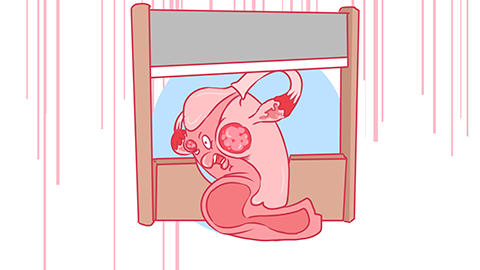What are the effects of hysterectomy?
Generally, hysterectomy may result in the inability to bear children, cessation of menstruation, impaired ovarian function, changes in pelvic floor function, and alterations in sexual experiences. It is recommended to properly care for oneself and recover after surgery, and to seek medical attention promptly if discomfort occurs. Detailed explanations are as follows:
1. Inability to Bear Children
The uterus is where the fetus develops. After hysterectomy, the embryo loses the space for implantation and growth, resulting in permanent loss of fertility. For women who plan to have children, this is an irreversible effect, so adequate psychological preparation and decision-making should be made before surgery.
2. Cessation of Menstruation
Menstruation occurs due to the cyclical shedding of the uterine lining. After hysterectomy, the endometrium is removed and menstruation permanently stops. Women of childbearing age will experience an abrupt interruption of their previously regular menstrual cycle and may require some time to adapt to this physiological change.

3. Impaired Ovarian Function
The uterus is connected to the ovaries through blood vessels and nerves. Hysterectomy may affect the blood supply to the ovaries, leading to premature ovarian decline in some women. Symptoms may include hot flashes, night sweats, insomnia, mood swings, and similar menopausal symptoms. The skin condition may also deteriorate, becoming dry and loose.
4. Changes in Pelvic Floor Function
The uterus provides structural support within the pelvis. After hysterectomy, the integrity of the pelvic floor structure is compromised, and the supporting strength of surrounding ligaments and muscles may decrease, potentially leading to pelvic floor dysfunction. This may manifest as anterior or posterior vaginal wall prolapse, or stress urinary incontinence, where urine may involuntarily leak during coughing, laughing, or lifting heavy objects.
5. Changes in Sexual Experience
After hysterectomy, vaginal length may slightly decrease. Additionally, hormonal changes or psychological factors may lead to vaginal dryness and painful intercourse, affecting sexual comfort. Furthermore, concerns about physical changes may cause emotional tension during sexual activity, further affecting the overall experience.
After hysterectomy, it is important to follow medical advice for postoperative care, avoid engaging in heavy physical labor too soon, and appropriately perform pelvic floor muscle exercises to strengthen pelvic muscle support. Additionally, attention should be given to psychological well-being; family support or professional psychological counseling should be sought when necessary, and medical consultation should be promptly sought if significant discomfort occurs.










